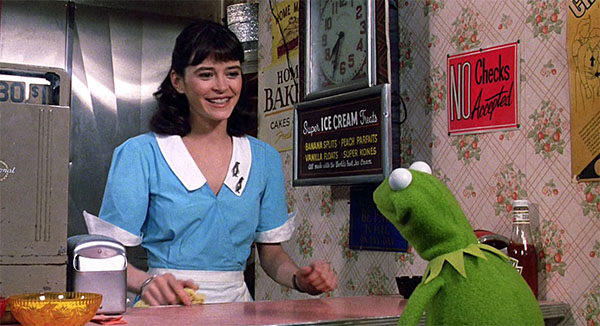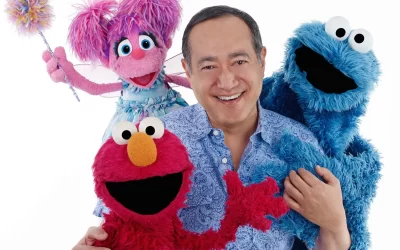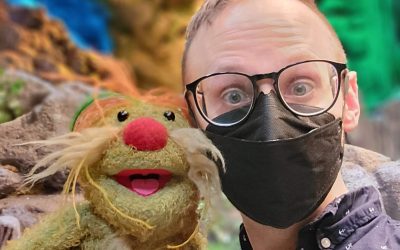
Jarrod Fairclough – At 9:30am on Saturday March 3rd, my phone rang from a Private Number. Generally I’d let it go to voicemail, but this was one phone call I’d been waiting for for three weeks. With my phone perched on top of a Funko Pop of Goofy, signed by his voice actor Bill Farmer, and a microphone that plugged in to my computer pointed halfway between the phone’s speaker and my own mouth, I pressed Answer and said ‘Hello, Jarrod speaking’. From the other end came a voice I’ve heard thousands of times over the past 28 years. ‘Hello, Jarrod!’ it said, cheerfully, and at once all my nerves piled on top of each other, almost rendering me speechless. But I fought through it, because there was no way in hell I was going to waste his time. After all, I only had him for 15 minutes. Or so I thought.
Below you’ll find Part 1 of my transcribed conversation with Frank Oz, original Muppet performer, director, writer and best friend to Jim Henson. After 3 years of trying to find some way to possibly interview him, I’d finally caught my white whale, and it was everything I wanted it to be…
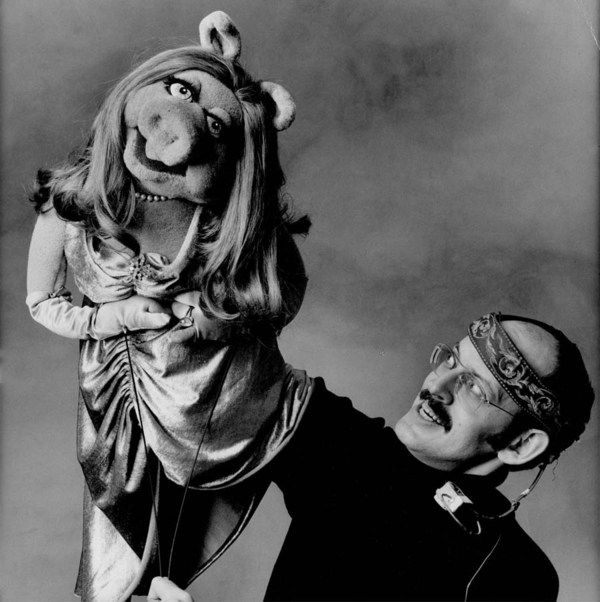
Jarrod: I’ve seen Muppet Guys Talking, and it’s incredible.
Frank: Aw, thanks.
Jarrod: Whether I’m right or wrong about this, it always seemed, at least to me, that you were quite a little bit shy to talk about your time with The Muppets, especially over the past 15 years or so. What was it that made you decide to revisit that era of your life, in such a public way with Muppet Guys Talking?
Frank: It was actually my wife (producer Victoria Labalme), she kept seeing me and Davey and Billy and everybody together and also work together, and she saw kind of a work culture that she hadn’t experienced before. She saw people who were supportive of each other, who were egging each other on, who love each other, try to screw each other over, there’s no tension. No politics, nothing. Just trying to do the very best job possible. And she works at a lot of companies around the country and the world, so she felt this kind of culture, this kind of way to work, that Jim installed in all of us, was really worth while to show the world. That’s the main reason. Besides the fact that I wanted to give the other guys their dues, because people know Jim, of course, some people know me, but these other guys aren’t as known, and I want them to be known also.
Jarrod: Absolutely. It’s that comraderie that you talk about, I went and visited the set of the ABC series a couple of years ago, it was amazing to see the support that these guys gave each other.
Frank: Yeah, that’s really how we work, that’s not phony. And so that’s the kind of thing that we wanna, especially in our country today, which is unfortunately lead with tension and division and everything else, we felt that that kind of inclusivity and collaboration and everything, this was a good time to show it, along with having a lot of fun.
Jarrod: Do you remember the last time you performed Fozzie or Piggy?
Frank: (thinking) Boy, uh, it’s been quite a while.
Jarrod: Did you know it would be the last time at that point?
Frank: No, that’s one thing I didn’t know. It was, uh…
Jarrod: I remember reading on Muppet Wiki it was around 2002 or so.
Frank: You think so? I don’t even recall.
Jarrod: Do you have any desire to return in any capacity? If not a performer, then a writer or director?
Frank: Oh absolutely! Absolutely, I’ve been wanting to for a long time. As far a performer goes, the only reason I stopped was, at the time, I was doing movies. And I was the father of four kids, but I was doing movies. I knew if I was gone to France or to Boston or to England or wherever to shoot a movie, I couldn’t say to Sesame Street, ‘Guys, you can’t use my characters for a whole year, I’m sorry’. I felt like I couldn’t do that. So I had to relinquish it, and became a full time director. So that’s the main reason I stopped. But, at the same time, Sesame Street used to invite me to come a few days a year, and that was fun! But they stopped inviting me, they never call anymore. And Disney has yet to call me, and ask me, so that’s why I don’t perform, because nobody asks me to.

Jarrod: So, if they were to call, you’d go back?
Frank: Yeah, depending. I mean, the problem is they don’t ask me, in part, because I’m expensive. I helped create the characters, and I think they can pay other people less because they’re just redoing my characters. I think it’s only fair to pay me a bit more money (laughs).
Jarrod: (laughing) That’s fair enough too!
Frank: So that’s another reason, and also because I have my own particular view points on what to do, but that’s not the main thing. The other thing is I wrote a movie with Jim Lewis, years ago. It was a Muppet movie I had an idea for when Jim and Jerry (Juhl) were alive. Jerry wrote it, and I rewrote it-
Jarrod: Is this ‘The Cheapest Muppet Movie Ever Made’?
Frank: Yes! But Disney decided to go with Jason Segal and it’s never returned again. It’s not for lack of me doing it, it’s also maybe just people not asking me. And also, I must say, if people hire me to do things – I can’t be controlled, I believe I know what I’m doing, you know?
Jarrod: Of course.
Frank: But I’d love to work with the guys again. Oh god, I love those guys.
Jarrod: Well, speaking of control, you directed and co-wrote The Muppets Take Manhattan. Is there a key to writing for these characters as opposed to only performing them in a production?
Frank: I think the key for a performer and a writer and a director is that these characters are pure. There’s a great purity in these characters, and that’s in part, sadly, what Disney doesn’t understand. As much as they love The Muppets and as much as they want The Muppets to be a success, I don’t think they understand that The Muppets come from purity, and they come from the performers underneath who’ve known each other for 30 years. That’s the heart of writing for The Muppets.
Jarrod: That’s such a great answer, and I think that’s why it’s important that Disney keep people like you around, someone like Kirk Thatcher, who have such an understanding of these characters after so many years.
Frank: I love Kirk, he’s terrific. You know, the usual thing in any industry and any business is when somebody takes over, they feel – rightly or wrongly – that they know what they’re doing, and they don’t need the people who started it in the first place. And, sometimes, that may be right. Maybe those people had an older vision and the newer people have a newer vision, but it’s not always right. Sometimes the newer vision is more superficial than the older vision. So it’s hot and cold, it sometimes works and it sometimes doesn’t.
Jarrod: If we can talk a little about Jim, do you remember the first time you met him?
Frank: Yes! Oh, sure! I remember the first time I saw him, not just met him! I was 17 years old, and we were at this conference in northen California, and I saw him in the distance on the conference grounds. He was a skinny guy with his wife, she was pushing a carriage, Lisa, who was about a year old at the time, they were pushing her, and Jim did not have a beard. So that’s the first time I saw him. When I actually met him was after I’d done a performance at that conference, he came afterwards and talked to me, said how good it was, and that was the first time we ever met.

Jarrod: Did you have any inkling then of the relationship that would form, of the dynamic that would slowly build?
Frank: None whatsoever. I was still a high school student, still thinking about, trying to get grades and play sports and get girls! I wasn’t thinking about Jim at all! (laughs)
Jarrod: Hey, I get it, I’m 28 and I’m still trying!
Frank: (laughs) No, I had no idea, no.
Jarrod: You’ve been really clear over the past 28 years since Jim passed that you carry the lessons he taught you every day. Is there one bit of wisdom in particular that stands out?
Frank: Oh, wow! Um… There’s so much. Certainly the idea of working extremely hard, having fun while you work extremely hard, to be inclusive. I think the main thing is just to, uh… I think collaboration. Collaboration is one of the key things.
Jarrod: Right, and I think that goes back to the whole point of Muppet Guys Talking, which shows just how much collaboration and those sorts of relationships can create such amazing work, when you really believe that that’s the core focus of your work.
Frank: Well, we were collaborative, Jim always wanted to hear everybodies opinion, but that doesn’t mean he agreed with us. However, he always wanted opinions, and he always respected and listened to opinions, as opposed to people who say ‘Tell me your opinion” and then don’t listen to you. He actually listened, and he actually, when he felt it was right, used it. He really valued us.
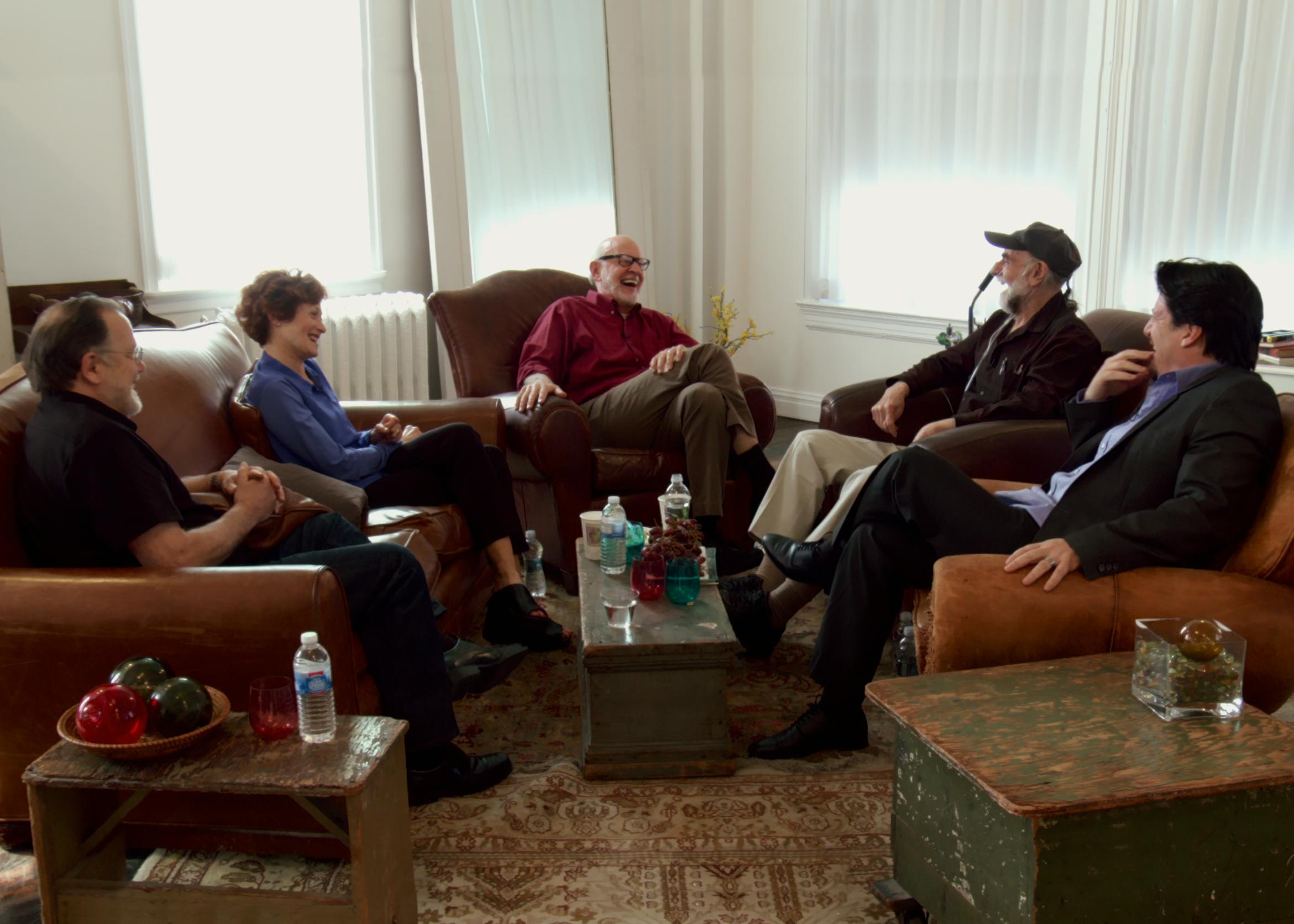
Jarrod: In Muppet Guys Talking you ask a question to the guys, but you don’t answer it yourself, so I’m wondering if I can ask you.
Frank: That’s not fair! I’m only allowed to ask questions! But okay.
Jarrod: How do you get to abandoned lunacy when performing these characters?
Frank: I think it’s from Jim – actually maybe collaboration isn’t the important thing. As Franny (Fran Brill) says, it’s feeling safe to express yourself any way you want. It’s that safety. I think that’s the answer for the lunacy also, because in order to be free, you have to be so free that you can make mistakes, and be silly, and it’s okay if you do something wrong, because no-ones going to yell at you. Of course, when we say silly and have fun, we always mean in a disciplined way, with structure, knowing we have a job to do, and we have to do it economically. But within that, we have to have safety in order to be able to let ourselves go.
Jarrod: It was 6 years between shooting Muppet Guys Talking and actually releasing it. Was there a reason for the delay?
Frank: Well, part of the reason was that we didn’t know what to do with it in the beginning. It was really just an internal document for me, and Victoria realized it was more than that. I just saw it as an internal document. We didn’t know what to do with it. We just wanted to get it the people on film, and gradually we started editing it. The main reason is because people worked for free, like my editor worked for free, the camera operators, they’re all friends, they worked for free. But because of that, there was no deadline, it was not a business thing, so when you don’t have a deadline, things can go on forever. I need a deadline. The other thing was our editor was an assistant editor on some very big Hollywood films in New York, so we only had her on weekends, or one day a week or something, that took a long time also. So the combination between that plus the fact that every documentarian I’ve spoken to, have a very long post production period where they’re trying to find the story, so it’s a combination of those things.
Jarrod: Do you know how many hours of footage you have from that day?
Frank: Yeah, about 9 or 10 hours.
Jarrod: Is there ever a chance we’ll see more from it?
Frank: Yeah, there’s bonus footage that we’re going to put together, and show more things that were said about Jim, about the culture, about the dangerous things we’ve done, yeah. There’ll be a lot more that I couldn’t fit in, and it’ll find it’s way online, because we want to share it with people.
Jarrod: Do you have any other documentaries you’d like to make?
Frank: No, not anymore. This was very difficult, ya know? I’m used to shooting movies, large movies, expensive movies. And that’s fine, that doesn’t scare me at all, because I have a script, and then I prepare the production, then I shoot the production, and I edit the movie to the script. But, with documentaries, you shoot first, then afterwards you have to create a story. So that was the hardest part of all, finding the story in what you shot. So it’s something I don’t want to do again, unless there’s something that really appeals to me, but I don’t know that I’d do it again. It’s harder than I thought.
Jarrod: Well, having seen the film, I think you did a fantastic job finding a cohesive and coherant story in that 65 minutes. Everything flows perfectly through the whole thing.
Frank: Well thank you. We spent a long time editing, I get very obsessed with editing, so that’s where it comes together or doesn’t.
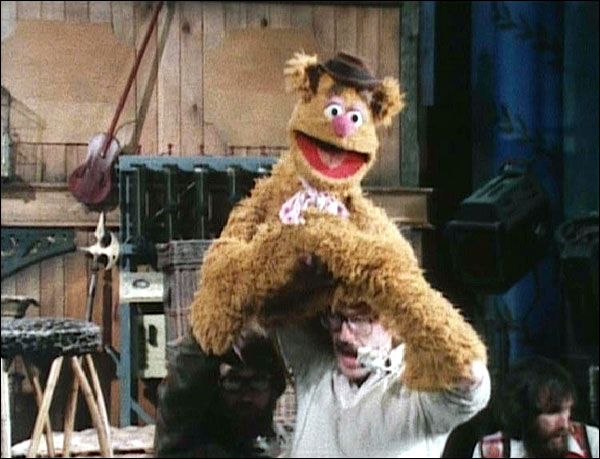
Jarrod: Well, we’ll change gears and go in to some lighter, more fun questions. When’s the most fun you’ve had performing?
Frank: Oh, wow. I’ve had so much fun performing. Uh… Honestly, it’s not really- It’s kind of performing, but not really performing. The most fun we had, including me, Dave Goelz, Billy, Richard Hunt, etc – Oh, and Jim Henson – The most fun we always have is recording the music. Certainly when we performed the characters we had fun, but we’re so much looser because we don’t have to think about so many things like when you’re doing a character. You’re thinking about doing the lines properly, you’re thinking about holding a prop, you’re making sure you’re not blocking out another puppet, you’re making sure a shadow doesn’t fall on a puppet, you have to get your entrances right. There’s dozens of things. So when it’s just us singing a song, for Sesame Street, or for a Muppet movie, or for The Muppet Show, that’s the time where we had our greatest fun.
Jarrod: Is there a specific day in the recording studio you recall maybe more so than the others?
Frank: You know, Jarrod, I don’t recall the specifics. What I really recall is the spirit of them all, which is just… I see Jim laughing until he’s crying, we’re breaking each other up. The engineer laughing. We get down, start doing a serious job, then break up again. That’s the kind of thing we did. We had a serious job to do, we couldn’t go on forever, we couldn’t afford that much time. The money and rental of the studio was important. So we had to get serious. But in every one of those times, we enjoyed singing, but we somehow just saw each other standing there as opposed to on monitors and such, and the spirit was just the same. It was just one large spirit of fun there.
Jarrod: Well, speaking of that spirit of fun, are there any particular bloopers, from either Sesame Street or Muppets, that you recall fondly? Fran Brill tells a quick one in Muppet Guys Talking about Cookie Monster and Prairie Dawn that sounds hilarious.
Frank: God, there’s so many. I mean, someone asked this, so it’s in my pysche, but I do remember a sketch that Jim and Jerry Nelson and I did called Rapunzel on Sesame Street. We were all laughing until we were crying, we had so much fun on that. The Muppet Show had the same thing, there were sketches there that we had so much fun with. There was more pressure there, because we had to do a show in three days. We had a guest star, we had a lot of scenery changing, so the pressure was greater there. But we still had a lot of fun. I guess the only answer I can think of immediately is, even though we did hundreds of those sketches, Ernie and Bert. Though I love the Grover Waiter sketches, all those with Jerry Nelson, we had so much fun doing those also. It’s hard to pick just one.
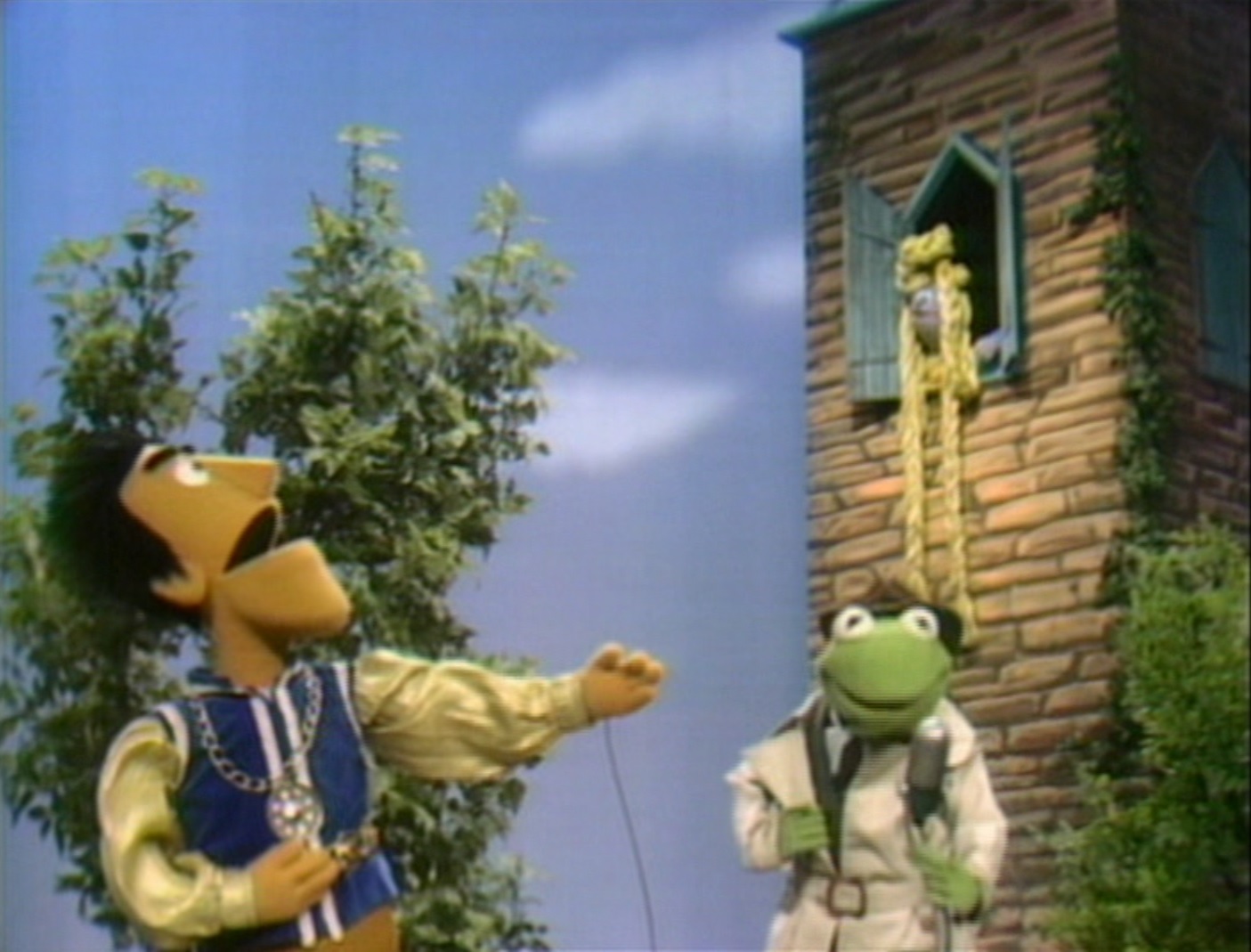
Jarrod: Well, you mention that Rapunzel sketch, you wrote on Twitter a couple of weeks ago a story about how that sketch doesn’t really educate at all, but that’s perfectly okay.
Frank: I imagine it was supposed to! (laughs) I remember on that one, we had a curriculam, but it just got pushed to the side, but again, at the same time, what kids were learning was a sense of fun and imagination.
Jarrod: Some of my favorite Sesame Street sketches are the ones that really are just there to be funny. There’s one with Ernie and Bert, where Bert is playing checkers with Bernice.
Frank: (laughs) Yes!
Jarrod: And it only goes for like 45 seconds, and it’s got NO educational value whatsoever, but it’s probably my favorite Ernie and Bert sketch.
Frank: (laughs) Yeah, that was fun, I remember that one. That was good. What I also loved on Sesame Street was the Chris Cerf songs that were sung by Jerry Nelson. He was Little Jerry at one point. Those rock and roll songs that Chris Cerf wrote, they were really great.
Jarrod: They were. Telephone Rock is one of my particular favorites.
Frank: That’s right!
Jarrod: Now, there was a story I read online once, and I’m wondering if it’s true. Is it true that on the set of one of the early Star Wars films, you surprised Mark Hamill during one take with Miss Piggy instead of Yoda?
Frank: No.
Jarrod: Not true!? Ah, damn. That’s one of my favorite stories!
Frank: No. I would never do that in a take. That means if I did it in a take, I’d be wasting film, and I’d be wasting everybody’s time. No. On a break though, between shooting, Jim came over and we palled around for a few minutes. But no, I’d never interrupt a take.
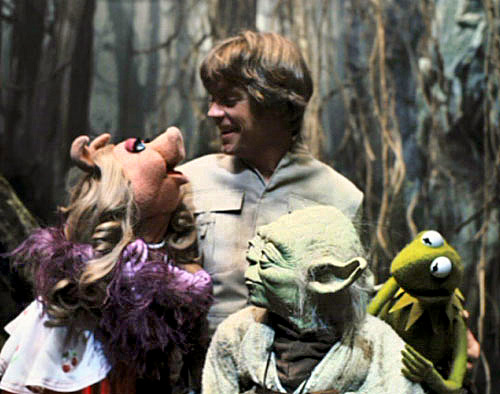
Jarrod: How was it being Yoda again?
Frank: Wonderful, it was just wonderful. It was wonderful to feel the gravitas of that character again, because I don’t sense that with the other characters. The other characters I do are there to be funny, essentially. With Yoda there’s a tremendous power underneath that I miss feeling when I’m not doing him.
At this point in time, I was 20 minutes in to what was supposed to be a 15 minute interview, and I had run out of prepared questions. I began to wrap it up, but Frank interrupted me.
Frank: No, please Jarrod, you can ask more questions, go ahead!
And so, for the next 25 minutes, I flew by the seat of my pants and asked anything I could possibly think of. Read Part 2 here as Frank and I discuss favorite sketches, why it’s called show business, and Frank says one thing that will change my perception of Miss Piggy forever.


